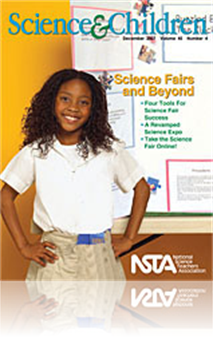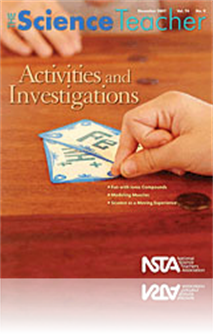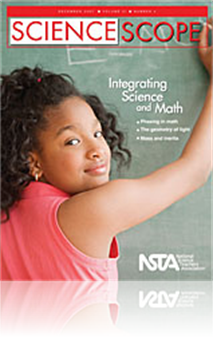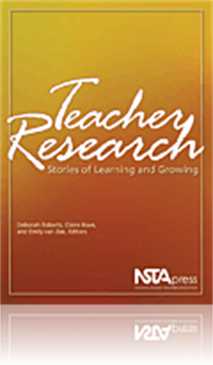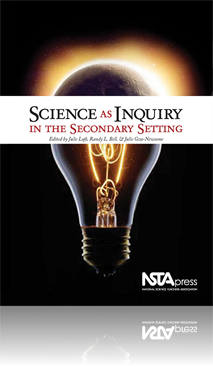All Resources
Journal Article
CLSI: Cool Life Science Investigations
With the number of popular medical and forensics programs on television and many references in the media today, even elementary students can comfortably throw around terms such as cells, DNA, and artificial products. However, their questions on th...
Journal Article
A typical card sort is an activity in which students are given a set of cards with a single concept written on each card and asked to organize the cards by grouping related concepts. The nontraditional card sorts described in this article foster crit...
Journal Article
Science Shorts: More Than One Way to Investigate
An exciting element of science fairs is that they give students the opportunity to explore various interests through scientific investigation. Many students, however, mistakenly think that all investigations are experiments. This lesson can help broa...
Journal Article
The Prepared Practitioner: A Free Library
The internet has been a wonderful invention for making resources easily available to anyone with access. As a science teacher and NSTA member, you probably have a list of favorite internet sites for teaching-related information, including NSTA’s we...
Journal Article
Science as a Moving Experience for All Learners
Students with disabilities (SWDs), students at risk, and even honors students can have a hard time relating to traditional science instruction and often disengage. However, research has shown that when science teachers use inquiry or activities-based...
Journal Article
Biotechnology in the Middle School Curriculum
Biotechnology is a fairly new concept for middle school students as well as teachers. If the latest craze of TV shows focused on crime scene investigation events were not so popular, the term and concept might be even obscure to the public. There is ...
Journal Article
Science Sampler: The Mathematics/Science Housing program
The National Middle School Association (1999) has identified transition programs, interdisciplinary teaming, and varied instruction as three of the five fundamental practices among exemplary middle schools. Elliott Grant Middle School in South Texas ...
Journal Article
A science fair might be the last thing you think of when planning a kindergarten science curriculum, but the authors found it to be the perfect avenue for teaching their students science-process skills. Here they share their steps in teaching science...
Journal Article
The Philbrick Science Showcase
The annual Philbrick Science Showcase is a family event that celebrates students’ science learning and highlights an ongoing partnership with the Boston Nature Center, a Massachusetts Audubon Society sanctuary within walking distance of the Philbri...
Journal Article
The end of a year is always a time for reflection and looking back. Even though December may feel more like mid-year for teachers, the end of the calendar year inevitably brings top-10 lists, reviews of the best the year had to offer, and vows for im...
Journal Article
Scope on Safety: Debugging safely
The hazards of pests in the classroom are numerous. Mice can contaminate food and supplies and trigger asthma attacks, cockroaches can cause allergic reactions and aggravate asthma, flies can spread disease, bee and yellow jacket stings can be life t...
Journal Article
Moon Phase as a Context for Teaching Scale Factor
The Sun and the Moon are our most visible neighbors in space, yet their distance and size relative to the Earth are often misunderstood. Science textbooks fuel this misconception because they regularly depict linear images of Moon phases without resp...
Journal Article
The Early Years: Recording Sensory Words
From children’s viewpoints, what they experience in the world is what the world is like—for everyone."What do others experience with their senses when they are in the same situation?” is a question that young children can explore by collecting ...
Book Chapter
Monica Hartman, Assistant Director for Science in St. Clair County, Michigan, conducted this research while she was the learning specialist in a small suburban district just outside a large Midwestern city. While teaching full time in this district s...
Journal Article
The inertial balance is one device that can help students to quantify the quality of inertia—a body’s resistance to a change in movement—in more generally understood terms of mass. In this hands-on activity, students use the inertial balance to...
eBook
Science as Inquiry in the Secondary Setting (e-book)
It can be a tough thing to admit: Despite hearing so much about the importance of inquiry-based science education, you may not be exactly sure what it is—not to mention how to do it. But now this engaging new book takes the intimidation out of inqu...



